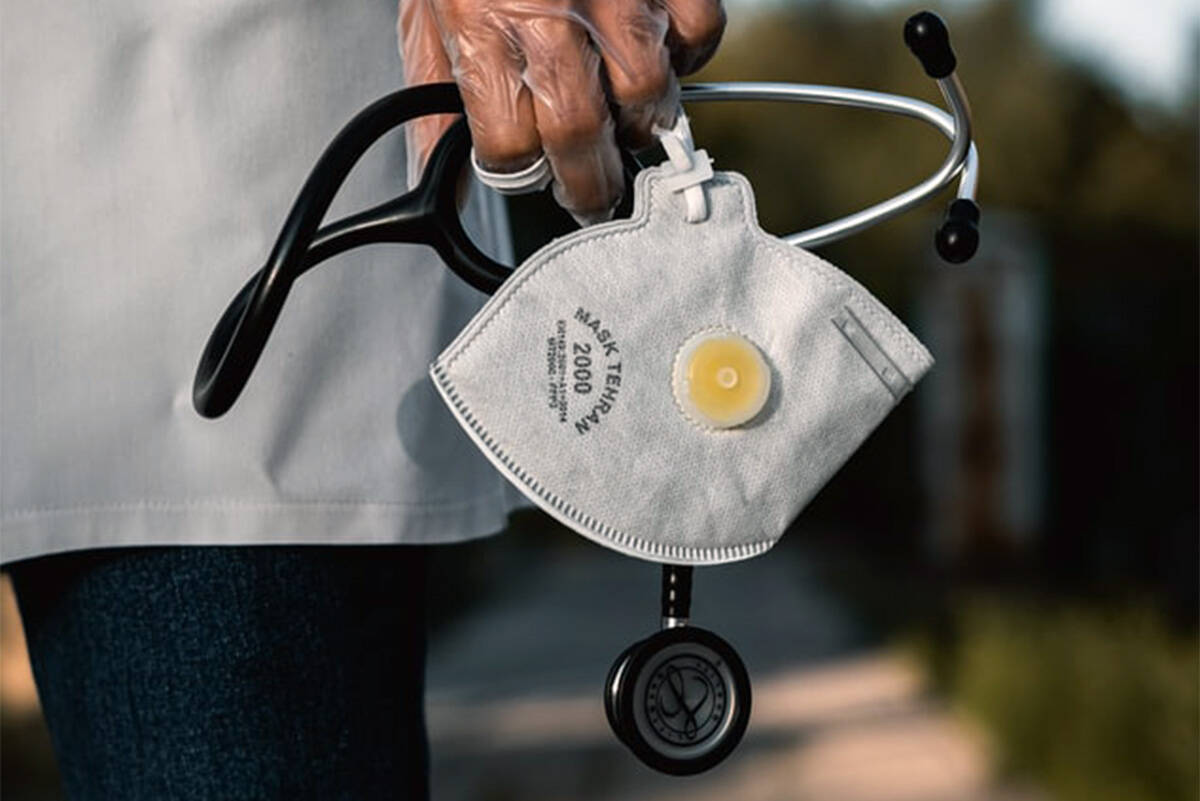When B.C. began vaccinating people against COVID-19, a Langford woman trained as a family physician reached out to Island Health and offered to help administer the shots.
Performing an intramuscular injection is among the easier skills she has mastered as a doctor. But she was told no.
Educated in India, Upkar (whose name has been withheld to protect her identity as she fears professional repercussions from speaking out) is just one of hundreds of international medical graduates who arrive in Canada each year to find significant barriers to being able to practise.
This is especially true for those trained outside of English-speaking countries.
“What I hear after all these years of trying to get through this, is that no matter what I do, just because of my country of origin, my country of education, I will never be good enough,” she said.
To practise in Canada, international medical graduates must pass a series of national medical exams, complete a residency through a Canadian university, get certified, then apply to be licensed provincially.
Obtaining a residency can be exceptionally challenging, however, with less than 10 per cent of spots set aside for international students.
The Canadian Residency Matching Service, an organization that works to place graduating medical students and others in available residencies, found only 325 of 3,365 spaces were allotted for non-Canadian graduates in 2021 – a clear sign Upkar faces huge odds just to secure such a position. She has applied three times to the University of British Columbia’s family medicine residency program without success and plans to try again.
READ ALSO: Doctors trained abroad want to join front lines of COVID-19 fight in Canada
To keep her skills up to date, Upkar has been attending medical courses and returning to India periodically to practise. She went there when COVID hit, too, to ensure her capabilities didn’t go to waste.
In India, Upkar is a respected doctor. In Canada, she’s been forced to spend 12 years in positions she’s highly over-qualified for, including a stint at Walmart, while doctor shortages and burnout wreak havoc on the health care system.
“I moved here because I thought I would be treated as a human, not just a woman. And then I moved here, and yes I’m treated as a human, but a suboptimal one.”
At about the same time Island Health told Upkar she couldn’t administer vaccines, it trained a group of firefighters to do so last summer. The situation was absurdly insulting, she said.
She turned to volunteering at vaccine clinics, checking people in or showing them where to go.
“I wanted to be involved in it, I wanted to help my community in some small way.”
Robert Falconer, a University of Calgary research fellow in the school of public policy, said there is an element of systemic racism built into the health care system that needs to be addressed.
“Why exactly do we think the medical education of graduates from various interesting, diverse places of the world is actually that much poorer than Canadian education? Many of these doctors are dealing with both traumatic and chronic illness in these countries that actually give them quite a bit of experience that would serve them well here in Canada,” he said.
The best estimate Falconer knows of suggests there are 5,000 non-practising, internationally-educated physicians in Canada. Following the World Health Organization’s doctor to patient ratio recommendation, they could be serving five million Canadians – coincidentally, the exact number the Canadian Medical Association estimates are without a doctor.
READ ALSO: Island Health issues apology over racist practices in health care system
Two pilot projects that began during the pandemic are giving Falconer some hope.
In Ontario, the province began allowing international medical graduates who have passed the Canadian exams but haven’t completed a residency, to acquire temporary licenses. Unfortunately, the project mostly flopped because the graduates had to get hired before the province would issue the license, and almost no clinics or hospitals would hire them without one. If tweaked though, Falconer thinks this could work.
The College of Physicians and Surgeons of British Columbia came up with the idea of associate licenses, where an international graduate would be allowed to work under the supervision of a fully licensed doctor. Falconer imagines this could end up being a good alternative to a residency.
Either way, he said, it’s time governments started seriously questioning the current system.
“For some reason, we’re still doing this thing that was established by old white dudes 50 years ago,” Falconer said.
Upkar has thought about moving back to India and working as a doctor several times, but she said she’s too determined to give up.
“Part of me wants to fight for this because I know I’m good at it.”
She also wants to prove to her kids that Canada is a good place to live.
READ ALSO: Greater Victoria family petitions government for solution to B.C. doctor shortage
Do you have a story tip? Email: jane.skrypnek@blackpress.ca.
Follow us on Twitter and Instagram, and like us on Facebook.
British ColumbiaDoctorsGreater VictoriaHealthcareImmigrationIndiaWest Shore

